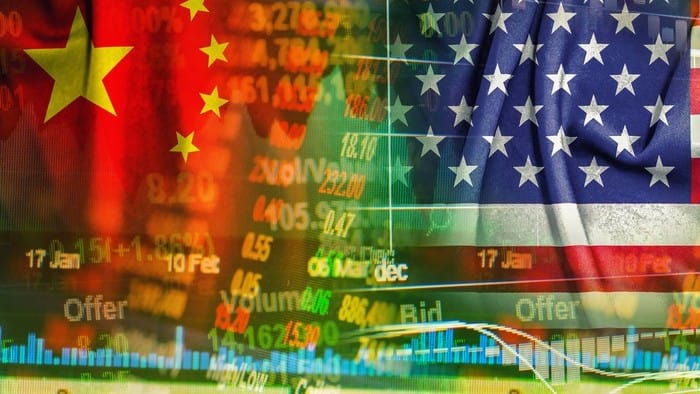This article was originally published on Fool.com. All figures quoted in US dollars unless otherwise stated.
What happened
Shares of many Chinese stocks -- among them, Alibaba (NYSE: BABA), Kanzhun (NASDAQ: BZ), and Full Truck Alliance (NYSE: YMM) -- were up strongly Monday even as US indices were down. Those three stocks were trading higher by 1.9%, 6.4%, and 10.7%, respectively, as of 1:24 p.m. ET.
The broad gains among US-listed Chinese stocks were likely propelled in part by some positive moves made by the Chinese government.
Authorities announced measures to contain the decline in the country's massive property sector, and on Monday, Chinese President Xi Jinping and US President Joe Biden met in person for the first time since Biden's election, a meeting that could perhaps pave the way for less strained relations between their two countries.
Additionally, China appears to be relaxing some of its most intensive zero-COVID policies. Those news items combined to give a boost to the beaten-down valuations of Chinese stocks.
So what
On Sunday, the People's Bank of China, in conjunction with the China Banking and Insurance Regulatory Commission, sent a directive to the country's financial institutions that featured 16 steps aimed at supporting the nation's property sector.
Investment bank Jefferies estimated that the new measures would inject around $184 billion into the sector, which should stave off developer defaults for another year, allowing the healthiest developers to continue operating and preventing the whole sector from freezing up.
Home prices across 100 Chinese cities have fallen for four straight months, threatening the country's economy.
In addition, China began relaxing some aspects of its zero-COVID policy, though cases are rising in the country as the weather cools.
While the zero-COVID policy is likely to remain in place until spring, investors applauded the easing of quarantine rules and the end of routine mandatory community testing, and the shifts likely show that authorities are reassessing the economic trade-offs the policy demands.
In any case, the new measures seemed to light a fire under some of China's more economically sensitive stocks.
Full Truck Alliance is a digital freight platform that connects shippers with truckers in the country. Kanzhun is a digital employment marketplace that links job-seekers and employers. Increased economic activity, consumption, and employment growth would be positives for each of these companies.
China's unemployment rate came in at 5.5% in September, higher than expected, and unemployment in the 16- to 24-year-old demographic clocked in at a whopping 17.9%. That's high by historical standards, and Kanzhun has felt the impact. Its share price is down 69% year to date -- a worse decline than Full Truck's 43% slide or Alibaba's 46% tumble.
Alibaba shares also gained ground Monday, though by a smaller percentage than these other companies. That perhaps reflects its size as well as its status as a prime target of regulators.
Chinese e-commerce companies last week held their annual Singles' Day, which is a retail event similar in scope to America's Black Friday.
Alibaba and other e-commerce players chose not to publicize the details of their Singles' Day results for the first time ever, leading some to believe China's current economic malaise may have led to a poor showing.
Instead, Alibaba only noted that this year's sales figures were roughly "in line with last year's GMV performance, despite macro challenges and Covid-related impact".
Alibaba also noted that Singles' Day ran completely on its cloud for the second year in a row, and pointed to an 8% decline in computing cost per resource unit compared with last year.
Now what
Alibaba will report its third-quarter earnings later this week, and analysts project that it will reveal that its sales increased by only 4.3%. However, analysts also expect to hear that its margins improved compared to the past few quarters thanks to cost-cutting moves and layoffs that took place earlier this year.
With the potential for an economic rebound in 2023, it's no wonder Chinese stocks are rising off their beaten-down valuations.
Also, the meeting between Biden and Xi is expanding the communication between their two diplomatic teams. Xi cut off some areas of dialogue between the nations after US Speaker of the House Nancy Pelosi visited Taiwan in August.
However, significant tensions still remain between China and the US, especially over the issue of Taiwan, as well as recently imposed restrictions on semiconductor sales to China.
Investors should remember that investments in Chinese companies come with added risks, as the government there can and does clamp down on private enterprise at will, and the geopolitical risks of US-China tensions will continue to be an overhang on US-listed Chinese stocks.
Chinese stocks may have room to run from their current low valuations given Monday's incrementally "less bad" news, but for the longer term, the picture is much murkier.
This article was originally published on Fool.com. All figures quoted in US dollars unless otherwise stated.









